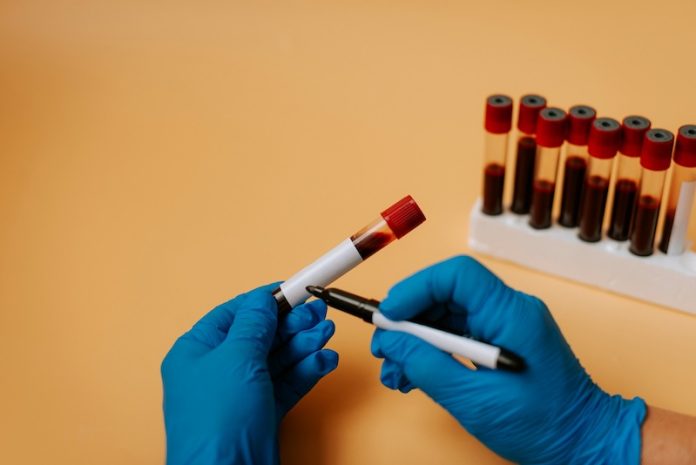
Scientists at Karolinska Institutet in Sweden have discovered that certain proteins found in the blood may help predict if a person will develop dementia, including Alzheimer’s disease, up to 10 years before symptoms appear.
This breakthrough could lead to earlier and more accurate ways of identifying people at risk for dementia, long before they show any signs of memory loss or cognitive decline.
The study, published in Nature Medicine, focused on older adults over the age of 60 who were still living independently and had no signs of dementia when the study began.
More than 2,100 people took part in the research, and they were followed for 10 years to see who would go on to develop dementia. By the end of the study, 17% of the participants had developed the condition.
Researchers tested the participants’ blood for several biomarkers—special proteins that can signal changes in the brain. The three main biomarkers they looked at were called tau217, neurofilament light (NfL), and glial fibrillary acidic protein (GFAP). These markers are linked to brain health, and earlier research suggested they might be useful for detecting dementia.
However, most of those earlier studies looked at people who were already showing signs of memory problems. This new study aimed to test the markers in a much broader group—healthy older adults in the general community.
The results were encouraging. The biomarkers could predict dementia with up to 83% accuracy. One of the study’s lead authors, Dr. Giulia Grande, said that this is promising because it shows it may be possible to detect who is at higher risk many years before diagnosis.
Importantly, people with low levels of these proteins were very unlikely to develop dementia during the next 10 years, which means the test could help reassure people who are worried about their memory but are actually at low risk.
However, the test also has limits. The researchers found that while high levels of these biomarkers were linked to a greater risk of developing dementia, they were not enough to guarantee that someone would get the disease.
In other words, many people with elevated biomarker levels did not develop dementia within 10 years. Because of this, the researchers caution against using these tests on their own as a screening tool for everyone.
Dr. Davide Vetrano, the senior author of the study, explained that the markers are useful but not perfect. They should not be used alone to decide who will or won’t get dementia. More work is needed to see how these tests can be used alongside other health checks and information from doctors.
The researchers also found that using a combination of two or three biomarkers—such as tau217 along with NfL or GFAP—could increase how well the tests work.
The study highlights the importance of continuing research to improve dementia prediction. The researchers now want to explore how these blood tests could be used in everyday health care, especially for older adults who are not yet showing any symptoms.
They hope that by combining these biomarkers with other information—such as medical history, brain scans, or mental function tests—they can create better tools to catch dementia early.
This study is a significant step forward in the early detection of dementia. The idea of using a simple blood test to predict dementia risk years before symptoms appear is both exciting and potentially life-changing. Early detection could allow people to make changes to their lifestyle or receive care earlier, which might delay the disease’s progress.
The strength of this research lies in its size and scope. By studying a large group of older adults living in the community—and not just those already experiencing problems—the study gives us a clearer picture of how these biomarkers work in the general population. The 10-year follow-up also adds strong evidence to the findings.
However, the study also makes it clear that these blood tests are not yet ready to be used as general screening tools. While the accuracy is good, the tests can’t yet reliably say who will develop dementia. More research is needed, especially to see how well these tests work in real-world settings, such as primary care clinics or aged care services.
In conclusion, these blood biomarkers—especially when used together—hold great promise for predicting dementia risk in the future. They could become valuable tools for doctors and patients alike, but for now, they are best seen as part of a larger puzzle.
With further study, they may one day help doctors detect dementia earlier and offer people more time to plan, prepare, and protect their brain health.
If you care about brain health, please read studies about how the Mediterranean diet could protect your brain health, and Omega-3 fats and carotenoid supplements could improve memory.
For more information about brain health, please see recent studies about antioxidants that could help reduce dementia risk, and higher magnesium intake could help benefit brain health.
The research findings can be found in Nature Medicine.
Copyright © 2025 Knowridge Science Report. All rights reserved.



